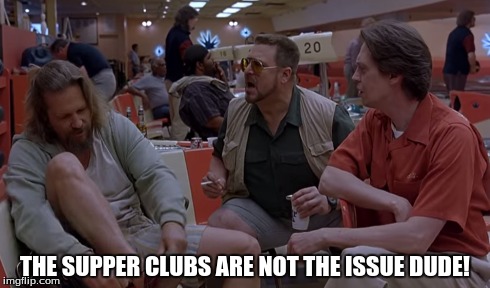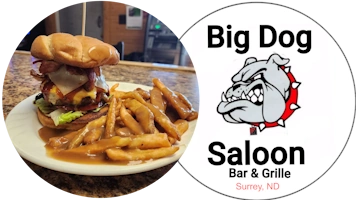If you caught our editorial last month — Let’s Raise a Glass to Less Liquor Regulation, you probably gathered we’re not fans of the recommendations coming out of Minot’s Liquor and Gambling Committee.
(if you’re not sure what this issue is all about, catch up quick with this link)
Thus far, it seems like the full city council doesn’t have an appetite for the restrictive, protectionist agenda of the smaller committee, but the matter is far from settled. At tomorrow’s City Council meeting the issue will again be front and center — this time as a ‘second reading’ which means a decision by the council would become written law.
From our perspective, it seems foolish to further regulate businesses that are contributing to an exciting benchmark for Minot — the establishment of a unique food and restaurant culture. But businesses like 10 North Main, Sweet & Flour, Souris River Brewing, and The Starving Rooster are not just creating a food and restaurant culture, they’re also creating jobs. And lots of them. And good paying ones too!
Take a look at the numbers below. Or better yet, stop into one of these places sometime and see for yourself.
- 10 North Main — 25-30 Employees
- Sweet & Flour — 16 Employees (And because their business is flourishing, they’re expecting to double that number shortly with soon-to-be-announced expansion)
- Souris River Brewing — 25-30 Employees
- The Starving Rooster — ~30 Employees
These numbers speak loudly, and here’s what they’re saying: our current laws regarding supper clubs are doing exactly what we want them to do — they’re fostering an environment that encourages investment and creates jobs.
But our Liquor & Gambling Committee isn’t completely wrong. Minot’s liquor license laws do need revision. Here’s the substantive language from Minot’s current law regarding liquor licenses.
Sec. 5.35: The total number of retail liquor licenses in force in any one (1) year shall not exceed one (1) for each one thousand five hundred (1,500) persons, or major fraction thereof, of the total population of the city. […] The city council may issue such additional licenses as it deems warranted by the change in population. This population of the city shall be determined by the most recent official federal, regular or special census.
Now, the language of municipal ordinances can be a little hard to grasp. If you got lost in the legalize of what that meant, we’ll pull out the nut for you.
The last time City Council was allowed to add a new liquor license was following the 2010 census. The next time our City Council can even consider adding a new liquor license due to growth is the year 2020.
Put another way, Minot will have experienced a massive flood, at least 5 years of significant population growth, and we’ll have designed, engineered, and partially built a ~$550 million flood protection system. But we’ll have to wait just a little longer before we consider letting someone open a new bar or liquor store.
So maybe — just maybe — we’re already protecting our liquor license holders enough. We don’t need help them out further by adding more costly regulations for their competitors.
Image: the picture is taken from The Big Lebowski, a 1997 Coen brothers movie produced by Working Title Films and Polygram Filmed Entertainment. Check it out here.
The Supper Club Issue
Supper clubs don’t have to pay for a full liquor license, yet in some cases they continue to serve drinks after they close their kitchens. Minot’s Liquor and Gambling committee is recommending more regulation for supper clubs by requiring them to stop selling liquor within two hours of closing their kitchen. Our contention, liquor license owners are already heavily protected by the archaic laws of Minot, and adding another layer of regulation for supper club owners would stifle restaurant development and investment. The culture of food is flourishing in Minot, let’s keep it that way!



